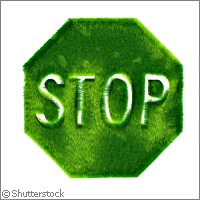Eco-recycling goes Gozo
The treatment of biologically degradable waste materials is improving thanks to the European funded Blended Learning Environmental Science (BLES) project. Good results are reported from the Maltese island of Gozo. BLES aims at supporting innovation transfer across the European waste sector. The transfer is made possible through the unique 'Blended Learning' concept, which combines internet-based learning modules with face-to-face meetings in participating countries. Somewhat surprisingly, an arts institution (Gozo's Wistin Camilleri Gozo Centre for Art and Crafts) is participating in BLES with outstanding results. Each year, Europe produces about 1.3 billion tonnes of waste, of which 150 million tonnes is biological. Most organic waste around the world is simply dumped untreated, resulting in ballooning quantities of methane gas (considered a culprit of climate change). This organic waste, however, has huge potential for biodegradability, and could be used more efficiently for energy production. BLES has taken the lofty responsibility of educating Europe about these benefits. BLES is funded by the European Union and is partly based on existing projects and their results, particularly the projects known as European RecyOccupation Profile, and European Waste Sector Assistant (EUWAS). During its participation in 'RecyOccupation', Gozo's Wistin Camilleri Gozo Centre for Art and Crafts (GCAC) was able to recycle waste material and develop new biodegradable products that can be used for the manufacture of artisan products as well as for use in packaging. Waste material was not only able to be recycled but also became a source of employment, team members said. Gozo Minister Giovanna Debono remarked, 'The authentic Gozitan art and crafts industry forms part of a unique and long-established culture. As such, it is essential that this sector is continuously supported and given the assistance it needs to flourish in order for it not to be lost in time. It is thus that we ensure holistic sustainable development wherein we ensure progress within our society without forfeiting important natural, cultural and historical characteristics.' Now GCAC is embarking on the second phase of the BLES project, which hopes to provide an online learning course for workers in the field of waste management. 'The Eco-Recycler - Treatment of Biodegradable Waste' course aims in particular at exploiting the potential resource of biodegradable waste. GCAC has already received responses from 33 high school students keen to participate in this course. Through online tuition and teaching support at GCAC, these participants will receive certificates that will eventually help them when they apply for related jobs. Due to BLES, a new qualification is now possible for workers who have to manage organic waste fractions. Ultimately, this project seeks to create and evaluate a training level that is uniform across every European state. Currently, qualification levels differ greatly from one European country to another.
Countries
Malta



